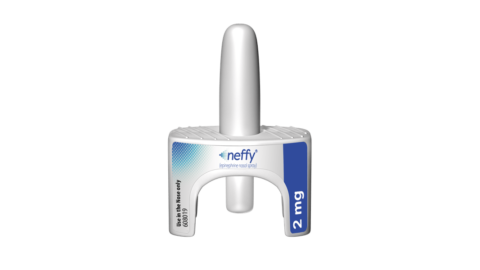Scheduling Note: The plan is for Cost Curve to be off tomorrow, back Monday. If any IRA prices leak, though, I’ll be back at it.
I was kind of bummed that there was no way to follow yesterday’s court hearing in the AstraZeneca IRA case live, because it means that I’m at the mercy of secondhand reports about what went down.
For what it’s worth, though, the secondhand reporters were pretty consistent: it didn’t go well for AstraZeneca.
STAT quoted Judge Colm Connolly saying “I don’t find [the AstraZeneca] argument compelling.” Evercore analyst Umer Raffat highlighted in yellow this bit in a post-hearing note: “Bottom-line: the hearing did NOT go well for pharma.”
But there are way too many moving parts for me to take blanket statements of pessimism at face value. Raffat suggested that the judge might have been down with AZ arguments around the “single-source drugs” definition. Fixing that wouldn’t put a stake through the heart of the IRA, but it would make it a little better. And industry will take wins where it can get them.
So maybe there’s a silver lining. I just can’t even speculate well without hearing it with my own ears.
The next question is when Connolly will rule on this. AZ is pushing for a March 1 decision, which would come just before the company needs to provide CMS with its “counteroffer.” But Connolly, in Raffat’s retelling, is not a fan of the urgency and said that he would have preferred that AZ try to seek a temporary injunction last fall rather than rushing the court now.
No idea what that means for the timeline, but I know I’ll be refreshing the docket on March 1 anyway.
Today is the day that the CMS tells drug companies exactly where the government thinks that prices should be set for medicines under the IRA.
It’s all very anti-climactic, though, because those numbers are secret (and likely to stay that way).
There’s a ton of coverage out there, but secret numbers mean none of the stories are very illuminating. That’s not the fault of the reporters. They’ve correctly identified a big-deal milestone, but that doesn’t mean there’s anything to say.
Indeed, the “best” coverage is the coverage that underscores how ignorant we all are. And by that standard, Axios has the best story today in that it quotes former ICER honcho Steve Pearson as admitting that “Nobody knows.” Which is all you really need to know.
In fairness, some people inside pharma companies will know today. The question will be whether or how executives tip their hands. Here’s how Pfizer’s CEO framed up the question of disclosure earlier in the week: “… we will try as soon as possible and practical to be able to provide the level of details that we are looking at, everybody is looking so that they can model it appropriately.”
That could mean interesting tea-leaf reading and investors look for signs and signals about where revenue goes next. It’s probably a fruitless process — the short-term impact on the first 10 drugs is probably not big enough to have a huge impact on models — but that’s not going to stop folks from guessing.
Lots of folks are still focused on the announcement around the CMS pilot on helping states pay for gene therapies. The consensus remains that details are too sparse to draw any big conclusions, but Real Endpoints’ Roger Longman has some must-read thoughts on the right questions to be asking as the pilot takes shape.
You might have seen, out of the corner of your eye, some news about a new tax bill that will extend the child tax credit. It passed the House yesterday, and there’s been a ton of coverage from child-poverty and electoral-politics POV. But the bill is also a huge boon to biotech companies in that it makes R&D expenses deductible more quickly. This great Fortune op-ed by a biotech executive lays out exactly why the issue is existential for R&D-heavy life science companies.
I’m going to write more about the Novartis earnings call, probably early next week, but the transcript has some interesting nuggets. Among them is the fact that Novartis is projecting that Entresto will see generic competition next year, before its IRA price-controlled price is implemented. The company is also expressing some confidence that its breast cancer medicine, Kisqali, won’t be hurt badly if it’s selected for price controls because so much of the growth is in non-Medicare patients.
Some obesity nuggets: this WSJ column is right on in its take on why supply constraints, not coverage, is all that matters in the obesity market right now. And Novo Nordisk is saying that it expects obesity meds to continue to get cheaper: “… as we see an increase in volume, we should expect to see also a decrease in price over time as a product gets larger in the marketplace,” the company’s head of North America Operations told analysts yesterday. That’s not a surprise to those paying attention, but I’m not sure that the general public is tracking on that dynamic.
CMS put transcripts up from its patient-focused listening sessions, redacting the names of every patient who testified in the open public sessions and making the whole effort feel performative. (If you want the super-secret, non-redacted transcripts of the incredibly public, livestreamed sessions, here you go.)
The HTA process in Canada lacks accountability and transparency and shouldn’t be a model for any efforts in the United States, two Canadians argued in Health Affairs Forefront.
We can all pour one out for Aduhelm, which — in its short time on the market — resurrected the amyloid hypothesis, prompted a huge power grab by CMS, and set off a firestorm over pricing. It will forever live on as a case study.
If this email was forwarded to you, and you’d like to become a reader, click here to see back issues of Cost Curve and subscribe to the newsletter.





